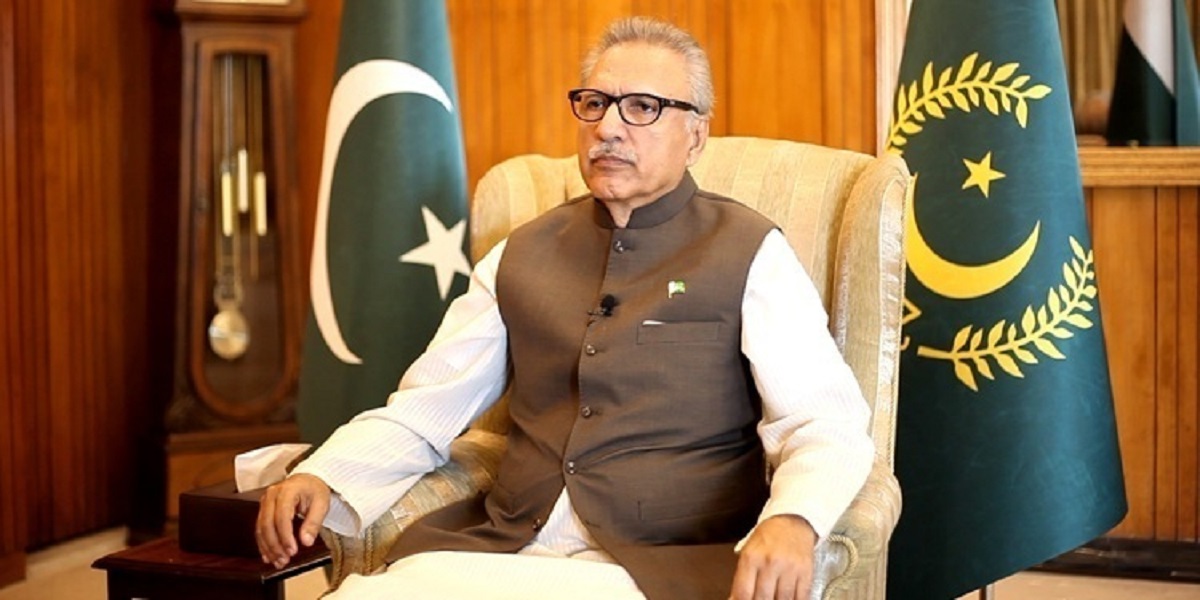ISLAMABAD: President Dr Arif Alvi on Wednesday said that Pakistan’s progress is linked with extensive digitalisation of all the sectors, particularly education and health, and stressed for fast decision-making to match the global advancements in information technology.
“Pakistan needs a paradigm shift in [the] IT sector with an ability to process and analyse more data and devising the policies as per [the] contemporary needs,” the president said, in his address at the National Broadband Network Forum.
The forum themed “Broadband for all” was jointly organised by the Pakistan Telecommunication Authority (PTA) and Huawei Technologies Pakistan, which brought together local and foreign stakeholders for an insight into transformative technologies and viable solutions to challenges.
President Alvi said that Pakistan is heading in the right direction to improve its digital footprint and ensure access of its citizens to the “information highway” and communication services.
However, he said, had the decision on expanding broadband infrastructure taken a decade ago, the country would have witnessed a revolution in the IT sector.
“The technology is running ahead of us and we need to take hold of it by adopting a proactive and marketable approach,” he said, adding that China is an inspiring model in making strides in the technology sector.
Digitalisation of financial and banking systems would not only improve the response time but also ensure transparency in transactions, he said, adding that the pandemic has increased manifold the importance of access to broadband services, particularly in the areas of education and health.
Online learning is still the cheapest source of knowledge, the president said, adding that he is in touch with the universities to encourage distant education along with the traditional brick-n-mortar setups to increase the number of graduates.
President Alvi expressed satisfaction that 50 per cent of the country’s population has access to cellular services and appreciated the contribution of PTA and Huawei Technologies Pakistan on organising the initiative.
He expressed the hope that it would help promote constructive dialogue on increasing broadband proliferation, leading to accelerated fiberisation and the launch of 5G services in Pakistan.
Ministry of Information Technology and Telecommunication secretary Muhammad Sohail Rajput said that without an effective broadband infrastructure, the dream of a digital Pakistan would be difficult to materialise.
He said the government is focusing on the incentivisation of the private sector to enhance broadband capacity and; thus, contribute to Gross Domestic Product (GDP) growth.
Pakistan Telecommunication Limited (PTCL) and Ufone president and Group chief executive officer Hatem Bamatraf said that the broadband internet has a great impact on the digital economy and provided an opportunity to overcome business challenges complemented by cellular communication.
Pakistan’s IT sector, he said, has immense growth potential in the areas of broadband, cloud computing, and analytics management.
He emphasised “digital deepening” in the country driven by an economic approach.
PTA chairman Maj Gen Amir Azeem Bajwa (Retd) said that the forum is a step towards deliberating upon augmentation of the broadband infrastructure, data analytics, spectrum management, and emerging technologies.
He said Pakistan has achieved international accolades in the IT sector with 107 million broadband subscriptions and 186 million cellular services subscribers.
A 52 per cent increase in the broadband data usage during 2020, while in 2021, the country’s fixed broadband penetration was recorded at 1.6 per cent, with 2.9 million fixed broadband subscribers and Fiberisation Density Index at 0.56km/1,000 inhabitants.
He lauded the support of Huawei Technologies Pakistan CEO Mark Meng in accelerating Pakistan’s journey towards a digital economy.

















